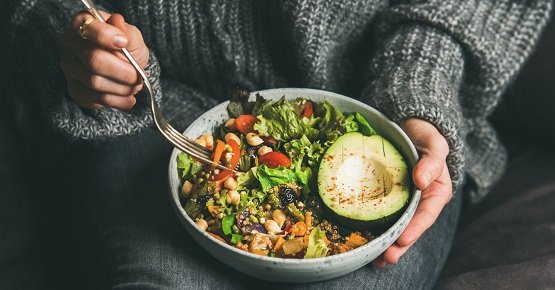When people experience trauma, their eating habits often change. Some may lose weight, while others may gain weight. This can be a difficult time for those affected, as they try to cope with the trauma and its aftermath.
There are many options available for trauma survivors which can help them to understand and process their experiences. Various programs can help those who have gained or lost a significant amount of weight due to trauma to regain healthy body weight.

Many people wonder how they will ever be able to eat normally again after trauma. The good news is that help is always available and it is possible to return to healthy eating habits. The answer that people perhaps seek is how to deal with it.
The first step is to talk about it
Food is fuel for the body, and during times of stress, the body’s nutritional needs change. When people are faced with traumatic events, they often lose their appetites and lose weight. However, some people cope with stress by overeating, which can lead to weight gain.
The type of food that people crave also changes during periods of stress. People often crave comfort foods that are high in fat and sugar. These foods give people a temporary sense of comfort, but they are not nutritious and can make people feel worse in the long run.
Trauma experts suggest that eating habits often change during periods of trauma. People may become more restrictive in their diets, or they may binge eat and gain a lot of weight. Some people may also develop eating disorders such as anorexia or bulimia. It can also lead to changes in the way people digest food and absorb nutrients. To cope with these changes, seeking group supervision from an expert may help. This will help people to understand their new eating habits and to make sure that they are getting the nutrients they need.
No man is an island
It’s no secret that food can be a great comforter during tough times. Whether it’s a pint of ice cream after a breakup or a warm bowl of soup on a cold day, we often turn to food for solace. However, there are also times when our eating habits change drastically in response to trauma or stress.
For some people, this may mean dramatically increasing or decreasing their intake, while others may find that they no longer have an appetite at all. Sharing stories about how our eating habits have changed during difficult periods can help to normalise these experiences and provide comfort to others. It can also help to identify patterns and triggers, which can help manage future episodes.
A trauma psychologist from Nerang wrote about how one of her patient’s shared eating habits changed after she experienced a traumatic brain injury. The first week after the incident, she could only eat soft foods like mashed potatoes and soup. She had difficulty chewing and swallowing, and her stomach was so sensitive that even the smell of food made her nauseous. However, as her recovery progressed, she gradually began to add more solid foods to her diet. By the end of the month, she was eating a full range of solid foods and even enjoying the occasional glass of wine.
Sharing her story helped to cope with the trauma of her injury and also gave her a greater appreciation for the simple pleasure of eating a meal. It also helped to remind her that even during the most difficult times, it is possible to make progress and eventually return to a state of normalcy.
Sharing our stories about how trauma has affected our relationship with food can be a powerful tool for healing.
Getting expert advice can mean all the difference
It’s common to lose your appetite or have difficulty eating when you’re going through a tough time. Maybe your stomach is in knots or you just don’t have the energy to cook. Or maybe you find yourself turning to food for comfort more often than usual. Whatever your experience, it’s important to make sure that you’re getting the nutrients your body needs to heal and cope with stress. Here are a few tips from a Los Angeles weight loss nutritionist for managing your eating habits during a traumatic period:
- Don’t skip meals. It may seem easier to just not eat when you’re not feeling hungry, but this can make you feel worse. Skipping meals can lead to low blood sugar, which can cause fatigue and irritability.
- Make time for breakfast. A nutritious breakfast will give you the energy you need to face the day.
- Eat regular meals. Just as skipping meals is unhelpful, so is grazing throughout the day. Eating several small meals or snacks instead of three square meals can disrupt your body’s natural rhythms and make it harder to focus.
- Incorporate healthy foods into your diet. Now is not the time to strictly diet, but it is important to make sure that you’re eating foods that will nourish your body and provide the vitamins and minerals you need for healing. Choose fruits, vegetables, whole grains, lean proteins, and healthy fats.
- Drink plenty of fluids. Staying hydrated is crucial for physical and mental health. Drink water throughout the day and limit caffeine and alcohol, which can aggravate anxiety and promote dehydration.
- Be mindful of your eating habits. Pay attention to how you’re feeling before, during, and after eating. If you’re using food to cope with stress, try other coping mechanisms such as exercise, journaling, or talking to a friend or therapist.
Lastly, the last thing you want to worry about is your weight if you are going through a tough time. However, carrying extra weight can make it harder to cope with stress and could lead to health problems down the road.
That’s why it’s important to have a weight loss plan in place before you find yourself in the middle of a traumatic event. Working with a weight loss nutritionist can help you develop healthy eating habits that will support your weight loss goals. They can also offer expert advice on how to manage your eating habits during a traumatic period.
Conclusion
Different trauma can lead to changes in eating habits that can be difficult to cope with. However, by seeking expert help and making healthy choices, it is possible to manage your weight during a traumatic period. Trauma counselling, weight loss programs, and holistic weight loss solutions can all help manage eating habits during trauma.




